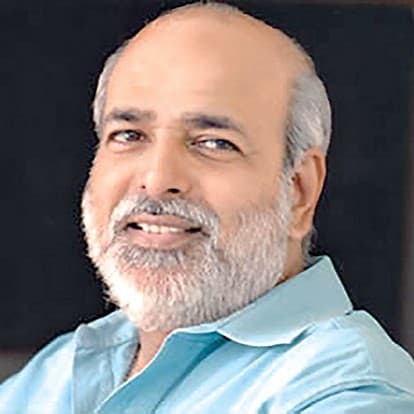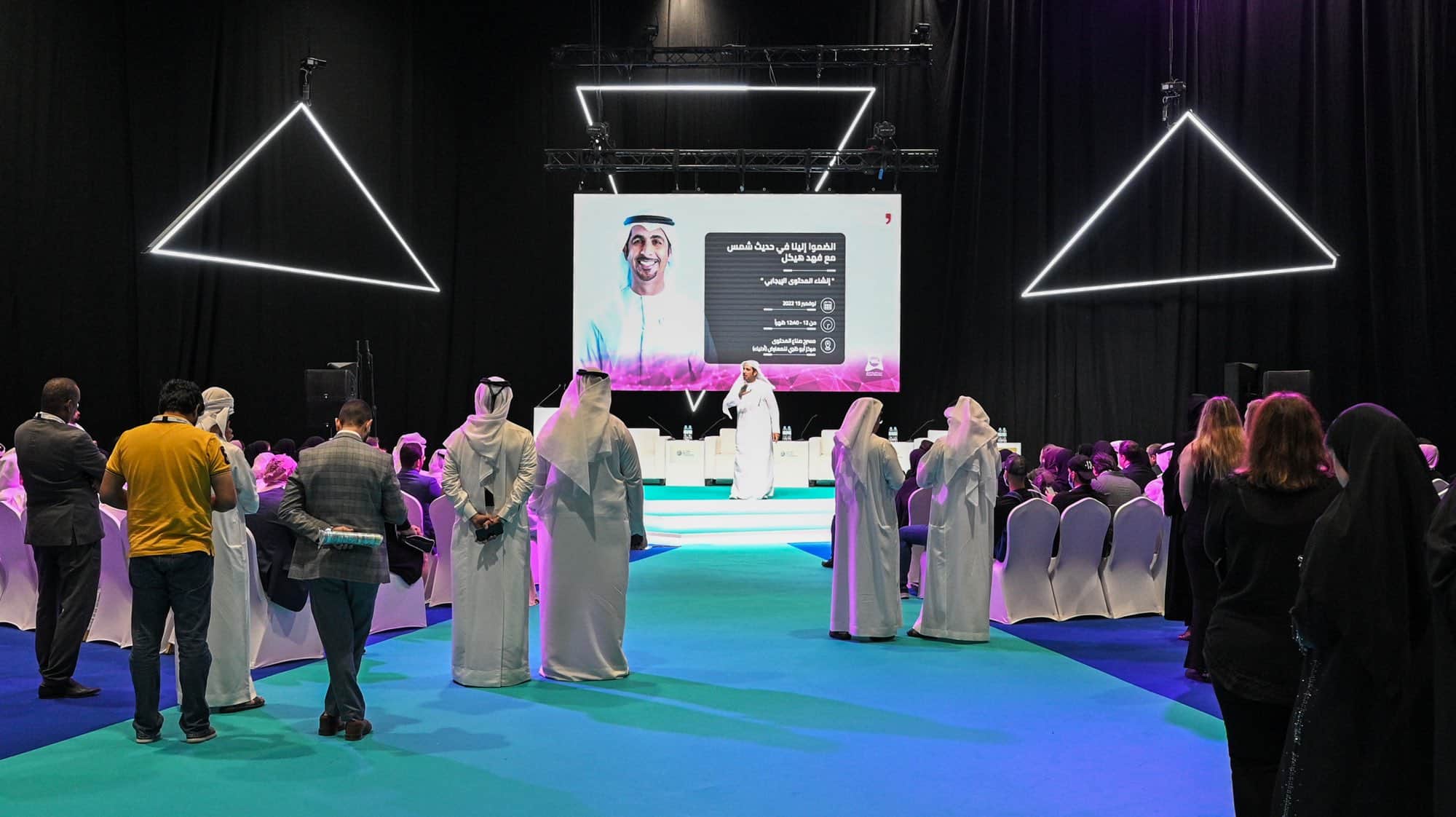ABU DHABI, UAE — An imminent paradigm shift in the digital world with declining dominance of big players is likely to occur, as it happened in the evolution of global climate discourse, according to a top media expert.

It will be like how climatologists and climate activists influenced the global climate discourse that compelled the bigger nations to comply with certain protocols on climate change, said Sashi Kumar, Chairman of Asian College of Journalism in Chennai in India, who is one of India’s most prominent media figures.
“I think we are at an inflection point now. Some big techs are facing crisis with large-scale layoffs and investment cuts. As digital space offers enough space and opportunity for diverse players, when they aggregate together and push back against the big giants, that will be the beginning of the defeat of the big tech,” Kumar told the Emirates News Agency (WAM) during the recently held Global Media Congress in Abu Dhabi.
New digital world order
Unlike in the industrial revolution, the developments in Information and Communications Technology (ICT) are quicker, he pointed out.
“So, it could happen in the next 5 or 10 years. But I think there is bound to be a redefinition of the digital world order, which will impact media communication in a very decisive manner. And I think the way it will happen is a long tail [aggregate of diverse players] striking back at the empire [big tech]. That is the way it is going to happen,” explained Kumar who was a speaker at the Congress.
Asked whether such a transformation on digital space will occur due to any organised campaigns by activists, Kumar answered, “No; I think there will be a natural synchronisation of interests.”
He pointed out how climatologists and activists, who believed that the existing order was not good for humanity, either economically or in terms of the future of children, got together across the world and influenced the bigger nations’ decision on climate change. “Similarly, I think there will be a change in digital space.”
Regulations on digital world
On the one hand, he pointed out, governments have started questioning big tech’s role and they are thinking of regulatory restrictions. This will compel the big tech to take the responsibility for the kind of content they host. The content is sometimes very negative, like hate speech that is bad for civilised society, the prominent columnist explained.
“On the other hand, the long tail of those who are concerned about society—they may be activists, businesspeople or professionals—will influence this discourse as it happened in climate action.”
He clarified that it may not be like a campaign of activists but a natural unification of common interests of such people, said Kumar who addressed multiple sessions at the Global Media Congress (GMC), which was organised by ADNEC Group in partnership with WAM, from 15th to 17th November.
Dangers of technological fundamentalism
Rational human beings, who are interested in transformation of society and in media and communication as a vehicle for the betterment of society, should be worried about technological fundamentalism, the veteran media person warned.
Technological fundamentalism is a belief that the increasing use of sophisticated advanced technology is always good, and its resultant negative consequences can be tackled by more technology.
Detailing the negative consequences of technological fundamentalism, he cited the use of algorithms to influence people’s predispositions, proclivities, taste, and ideological belief as an example.
“A technological bio profile of yours is there in somebody’s database [that influence your choices]. That’s why that is called push technology.”
Push technology creates echo chambers
The push technology devised by algorithms keeps you circumscribed in a particular area of your interest, belief, and taste [detected by the algorithm], the media expert said.
“That’s how the social media becomes an accumulation of infinitesimal filter bubble and echo chambers where we are like frogs in a well. Aggregation of frogs in a well does not make an ocean. It only makes more frogs in a well, more and more narrow-mindedness, more and more silos.”
So, that is one way the technological fundamentalism is operating and determining human tastes, human proclivities, human behavioural patterns and human consumption patterns, Kumar stressed.
Of course, he explained, it is obviously not just in terms of market consumption, but information consumption; not just in terms of consumption of goods and services, but consumption of ideas, ideologies, and philosophies.
“So, that is the way I think technological fundamentalism is already becoming a problem,” the prominent journalist said.
The first edition of the Global Media Congress (GMC) was held in Abu Dhabi under the patronage of Sheikh Mansour bin Zayed Al Nahyan, Deputy Prime Minister and Minister of the Presidential Court.
Under the theme “Shaping the Future of the Media Industry”, the Congress had the participation from more than 1,200 media sector pioneers, specialists, and influencers from six continents in the globe, with more than 30 debates and workshops featuring over 162 globally renowned speakers.

